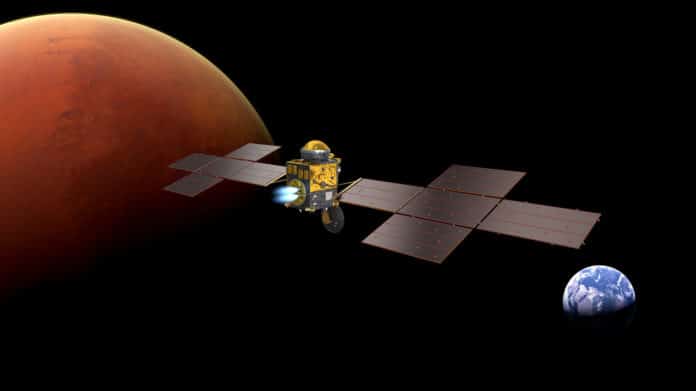Today, NASA’s Perseverance rover lifts towards Mars, and during its mission there, it will, among other things, collect rock and soil samples that will later be transported back to Earth. It is the Europeans who are working on how to bring these first Martian samples back to Earth.
More precisely, it is Airbus-France, which is responsible for the construction of what will be the first “interplanetary cargo spaceship” in human history. The giant satellite is known as the “Earth Return Orbiter” (ERO), which is intended to be launched towards Mars sometime in 2026.
It is a huge 6.5 tonnes body that uses a mix of chemical and electric propulsion to get to Mars and orbit the planet. With its immense solar arrays and a wingspan of 39 m, it will not only go to the red planet but, above all, collect the samples and bring them back to Earth. An operation that is both incredibly complex, but also extremely difficult.
“This is not just twice as difficult as any typical Mars mission; it’s twice squared – when you think about the complexity involved,” Dr. David Parker, the director of human and robotic exploration at the European Space Agency (ESA) told BBC News. “And this satellite that Airbus will build – I like to call it ‘the first interplanetary cargo spaceship’ because that’s what it will be doing. It’s designed to carry cargo between Mars and Earth.”
The vehicle will collect up to 36 football-sized sample containers left by the Perseverance rover, carry them back to the lander, and place them in a Mars Ascent Vehicle, which will launch them into orbit around Mars. NASA will put a rocket on the planet sometime later this decade to collect the samples from Martian orbit and return them to Earth.
When ERO and its cargo from Mars are expected to be back here on Earth, there is so far no information about it. Earlier, it was expected to reach Earth in 2031.
